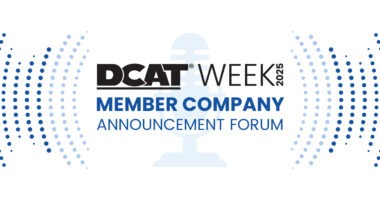Small-Molecules’ Gain: Trump Signs Executive Order on Drug Pricing
President Donald Trump has signed an Executive Order on drug pricing, which calls for eliminating the “pill penalty” under the Medicare Prescription Drug Negotiation Program to equalize the post-approval time frame for drugs subject to negotiation for small-molecule drugs and biologics.
By Patricia Van Arnum, Editorial Director, DCAT, pvanarnum@dcat.org
Seeking changes under the Medicare Drug Price Negotiation Program
This week (April 15, 2025), President Donald Trump signed an Executive Order to seek certain reforms under the Medicare Prescription Drug Negotiation Program, which was authorized under the Inflation Reduction Act of 2022 (IRA)). That law, for the first time ever in the US, authorized and required the US government, through the US Department of Health and Human Services (HHS), to negotiate prices for certain prescription drugs under Medicare, the US federal health insurance program for people 65 or older. The process for implementing the new law began in 2023, and the first negotiated prices for 10 drugs are set go into effect in 2026.
The drug-pricing measures under IRA apply to select drugs under Medicare Part D, which covers most outpatient prescription drugs from pharmacies and other pharmacy providers, and Medicare Part B, which applies to prescription drugs administered in a physician’s office or clinical/hospital outpatient setting. The Medicare Drug Price Negotiation Program limits the number of drugs to be selected for price negotiations. Under the drug-price negotiation program, the HHS Secretary is authorized and required to select a specified number of drugs from a list of 50 “negotiation-eligible drugs” with the highest Medicare Part D spending and from a list of 50 “negotiation-eligible drugs” with the highest Medicare Part B spending over a given 12-month period. It limits the number of eligible drugs for negotiations to 10 Medicare Part D drugs in 2026, 15 Medicare Part D drugs in 2027, 15 Medicare Part B and D drugs in 2028, and 20 Medicare Part B and D drugs in 2029 and thereafter. In all, over the next several years, if the law stays in place, the US government will negotiate prices for up to 60 drugs covered under Medicare Part D and Part B, and up to an additional 20 drugs every year after that.
In addition, the program also limits the type of drugs eligible to be negotiated under the drug-pricing plan. For example, the plan applies only to “high-cost” drugs defined by levels of Medicare spending, “older” drugs, defined on the basis of the number of years from when a drug was approved by the US Food and Drug Administration (FDA), and drugs without generic-drug and biosimilar competition. Also, certain drugs, such as orphan drugs and plasma-derived products, are excluded from the negotiation process.
The so-called “pill penalty” under IRA and the Medicare Drug Price Negotiation Program relates to the time post approval for which drugs would be subject to price negotiation and when those negotiated prices would go into effect. The IRA currently provides the Centers for Medicare for Medicaid Services (CMS) the authority to negotiate the prices of drugs for small-molecule drugs at seven years with those prices going into effect at nine years after they come to market. For large-molecule drugs, or biologics, the IRA sets these timelines at 11 years post approval to start the negotiation process, and those prices would go into effect at 13 years post-market entry. The earlier time frame for which small-molecule drugs are subject to price negotiation comparative to biologics is referred to as the “pill penalty.”
The Executive Order signed by President Trump this week seeks to address this differential, which would require Congressional approval, to modify IRA. The Executive Order did not specify how it would address the so-called “pill penalty,” but specified the need to address it as part of a means to lower the cost of prescription drugs.
“…[t]he program [Medicare Drug Price Negotiation Program] imposes price controls on small-molecule prescription drugs, usually in tablet or capsule form, 4 years earlier than on large molecule biological products,” said the April 15, 2025, Executive Order. “Known as the ‘pill penalty,’ this discrepancy threatens to distort innovation by pushing investment towards expensive biological products, which are often indicated to treat rarer diseases, and away from small-molecule prescription drugs, which are generally cheaper and treat larger patient populations.
The Executive Order directs the US Secretary of Health and Human Services to modify the Medicare Drug Price Negotiation Program to align the treatment of small-molecule prescription drugs with that of biological products, coupled with other reforms to prevent any increase in overall costs to Medicare and its beneficiaries.
Earlier this year (February 2025), a bipartisan group of members of the US House of Representatives introduced a bill, H.R. 1492, Ensuring Pathways to Innovative Cures (EPIC) Act, to modify the IRA to reduce the “small-molecule pill penalty” by setting the post-approval negotiation process for small-molecule drugs to begin 11 years after drug approval, similar to biologics, with those negotiated prices going into effect 13 years post-market entry.






